
We kindly inform you that, as long as the subject affiliation of our 300.000+ articles is in progress, you might get unsufficient or no results on your third level or second level search. In this case, please broaden your search criteria.

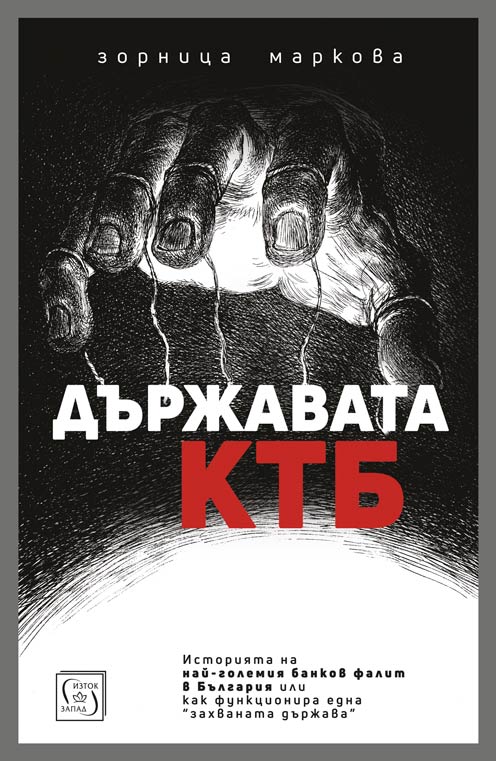
This book is the result of a two-year journalistic investigation that traces the history of Corporate Commercial Bank from its origin to its bankruptcy (1994-2014). The investigation was conducted on the basis of dozens of meetings with direct participants or witnesses of the events, representatives of state structures, political parties, business, regulators. In the process, hundreds of official and informal documents have been analyzed. Access to information by Bulgarian and international organizations has been requested many times. The collected facts, data, documents, and exclusive testimonies included in this book contain for the first time conclusive evidence of political corruption in Bulgaria. The aim of the KTBfiles project is to show the genesis of the "CCB model" (Corporate Commercial Bank model) and the technology of its expansion to magnitude, which pressed all key state institutions to the wall. The book explores the circumstances that made this vicious model possible, as well as the mechanisms for its eradication. This makes the investigation much more comprehensive, multi-layered and important than the chronology of bank bankruptcy, whether it is the largest in Bulgarian history. This qualitative journalistic investigation answers not only to the question #WHO but also to the questions how, why and especially what follows if we stop asking and live permanently with civil indifference and cynicism.
More...
„The Prince” was written by Niccolo' Machiavelli in the 1500s. It has continued to be a best seller in many languages. The Prince is a classic book that explores the attainment, maintenance, and utilization of political power in the western world. Machiavelli wrote The Prince to demonstrate his skill in the art of the state, presenting advice on how a prince might acquire and hold power. Machiavelli defended the notion of rule by force rather than by law. Accordingly, The Prince seems to rationalize a number of actions done solely to perpetuate power. It is an examination of power-its attainment, development, and successful use.
More...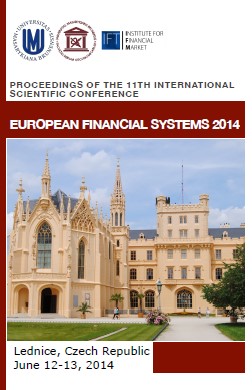
The price of government bonds reflects among other market confidence in governments' commitment towards sustainable fiscal policies. The aim of the paper is to examine the importance of fiscal fundamentals for sovereign risk spread in selected European Union member states in a period 1990-2012 and test if stronger fiscal discipline reduces sovereign risk premium. The empirical evidence is performed on unbalanced panel containing 15 EU countries and panel regression is a basic method of research.
More...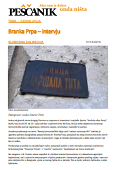
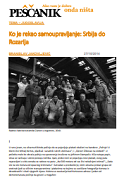
U ranu jesen, na ulicama Kikinde počinju da se pojavljuju plakati okačeni na bandere: „Pažnja! U blizini živi Mihalj Kertes, pljačkaš i saradnik ratnih zločinaca“; i: „Oprez! Zlikovac na slobodi“. U početku malo ko obraća pažnju na upozorenja izvučena na jeftinom štampaču. Kiša natapa papir, slova se razlivaju i ubrzo postaju nečitka. Ipak, preko noći se pojavljuju novi plakati, ovog puta napravljeni u vidu oznaka za radove na putu: „Na 500 metara od vas živi nekažnjeni otimač“; „Sada ste na sto metara od opasnog kriminalca“. Sutradan u predvečerje, istim ulicama prolazi grupa od stotinak ljudi sa sličnim transparentima i plakatima na kojima su uveličane fotografije Kertesa iz devedesetih i citati njegovih izjava. Kolona se zaustavlja kod Kertesove adrese i jedan od demonstranata počinje da govori u megafon...
More...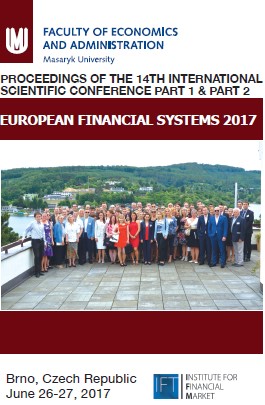
The yield curve – specifically the spread between the long term and the short term interest rates is a valuable forecasting tool. It is simple to use and significantly outperforms other financial and macroeconomic indicators in predicting recessions one to six quarters ahead. A rise in the short rate tends to flatten the yield curve as well as to slow down real growth the near term. The relationship between the spread and future GDP activity was proved already before. For better predictions it is good to use other overtaking indicators of economic activity as the development of the stock market. This paper aims to analyze the dependence between the slope of the yield curve, development of the stock market and an economic activity of selected countries between the years 2000 and 2016. The selected countries are the Czech Republic, Hungary, Poland and Slovakia. The natural and probably the most popular measure of economic growth is GDP growth, taken quarterly. We have found out that the bond spreads and stock market development might be used for predicting of the future economic activity, the best lags of bond spreads are 2, 4 or 5 quarters. These findings might be beneficial for investors and provide further evidence of the potential usefulness of the yield curve spreads as indicators of the future economic activity.
More...
The aim of study is to analyze the İsmet İnönü era in Turkey during his tenure while concentrating on the challenges and shortcomings of democracy. The study will focus on various dimensions, including political restrictions, limitations on freedom of expression, one-party rule, electoral systems, socio-cultural factors as well as economic policies in order to offer a detailed examination of the complex dynamics which shaped the democratic landscape of Turkey of the time. Studying the mentioned dimensions is expected to uncover the factors which led to the inadequacy of democracy during the İnönü era and eventually to evaluate their implications for Turkey's democratic development, which on the one hand encompasses the succession from Mustafa Kemal Atatürk and the Republican People's Party's (CHP) dominant role and on the other hand emphasizes the consolidation of power and the challenges to political representation. Particularly, the analysis of electoral practices can provide insights into the limitations of democratic processes, such as restrictive laws, voter intimidation, and limited political pluralism. Moreover, the study will examine the impact of these challenges on democratic decision-making which would include but not limited to the centralization of power, the marginalization of opposition voices and their meanings for citizen participation. The study will also try to evaluate the restrictions on freedom of speech and the media landscape, discussing the limitations imposed on critical voices, media control, and its consequences on public discourse and democratic participation. In addition to these, the study is expected to assess the socio-cultural dynamics which would focus on İnönü's modernization policies and their impact on social transformation. The study will explore the tensions between traditional values and cultural constraints, too. This will be carried out by highlighting the challenges faced by less represented groups and the inclusiveness of the political system. The economic policies of the İnönü era, including the economic vision and development strategies will be scrutinized, with particular attention given to the socio-economic disparities and their effects on democratic participation as well as political power dynamics. Furthermore, the study will attempt to examine the international relations and foreign policy approach of İsmet İnönü. This examination will be through the consideration of the implications for democracy and Turkey's international standing. The influence of external factors on democracy in Turkey during the mentioned timeline will also be assessed. Finally, the study will be concluded with the evaluation of the legacy of the İnönü’s era, weighing the democratic gains and losses while drawing lessons for Turkey's democratic development and considering the implications for the post-İnönü era. This comprehensive analysis is expected to contribute to a nuanced understanding of the İsmet İnönü era's impact on democracy in Turkey which could highlight the complexities and challenges faced during his tenure. The critical examination of the various dimensions, the study will provide valuable insights for scholars, policymakers as well as for any expert who is interested in Turkey's democratic history and in the ongoing democratic journey.
More...
The main purpose of this study is to examine the current energy economics literature in Türkiye by considering the role of innovations, foreign direct investments, economic growth and trade openness in the function of carbon emissions. In the study using 1994–2020 data, vector error correction model (VECM) and ARDL bounds test methods were used to examine the effects of innovation, trade openness, foreign direct investment, per capita GDP on CO2 emissions. Accordingly, it was concluded that trade openness and GDP per capita are among the variables affecting CO2 emissions in Türkiye. GDP per capita and trade openness affect carbon emissions positively in Türkiye. On the other hand, the relationship between FDI, innovation coefficient and CO2 emission coefficient is not significant at the 5% level. The sign of the coefficient of the predicted foreign direct investment and innovation variable is positive. In line with the findings, it primarily targets the energy consumption model, since economic growth is the primary driving force of the country's economy. Policy makers should turn to practices that encourage the use of renewable energy sources rather than the use of fossil fuels. While transitioning to renewable energy sources, R&D units in the country can be used for the development of renewable energy solutions.
More...
In this study, it was aimed to examine the causality relationship between female suicide rate, fertility rate, female unemployment rate, inflation and gross domestic product between 2000-2022 in Turkey. In the examination of stationarity, Augmented Dickey and Fuller (ADF), Phillips-Perron (PP), Kwiatkowsky-Philips-Schmidt-Shin (KPSS) and Dickey-Fuller generalized least squares, Zivot and Andrews one structural break test were used and Granger causality test was conducted to investigate the causality relationship. According to the results of ADF, PP and KPSS unit root tests, it was determined that all series were stationary at the first difference. A bi-directional causality relationship was found between female suicide rate and fertility rate, and unidirectional causality relationship was found from female unemployment rate to female suicide rate and fertility rate. On the other hand; it has been determined that female suicide rate, female unemployment rate and GDP per capita are the causes of inflation and there is a unidirectional causality relationship from these variables to inflation. According to Granger causality test results, there is no Granger causality relationship between female suicide rate and GDP per capita.
More...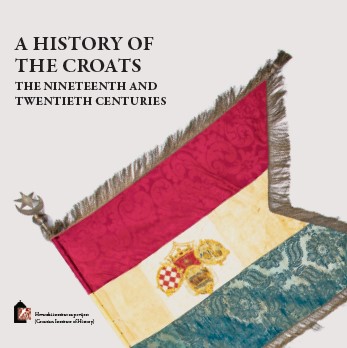
Napoleon’s conquests tailored a new map of Europe, and after his defeat a new European order had to be created. This was achieved at the Congress of Vienna, which lasted from September 1814 to June 1815. It was attended by as many as 64 delegations from various European countries, led mostly by foreign ministers. The most prominent participants were the foreign ministers of the European superpowers of Great Britain, Prussia, France, and the Habsburg Monarchy, as well as the Russian Minister of State. One of the key figures guiding the decisions of the Congress was the Austrian Minister of Foreign Affairs, Prince Klemens Lothar Wenzel Metternich. The main goals of the Congress were to restore rulers and states on the principle of legitimacy where possible, rewarding the victors, and to ensure peace. All states that had contributed to Napoleon’s final defeat made territorial gains. At the Congress of Vienna, the Habsburg Monarchy (Austrian Empire) confirmed its rule over the Lombard-Venetian Kingdom, and the Habsburg dynasty maintained its influence in other Italian states through its side branches. Dalmatia and the Croatian regions south of the Sava, and the Slovene provinces that had been under Napoleon’s rule, were restored to the Monarchy.
More...
The unstable economic situation with frequent financial crises in developed European countries, years of crop failure, and famine among the lower classes, a widespread dissatisfaction with the political situation, the strengthening of national movements, and the spread of liberal ideas created fertile ground for a new wave of unrests in Europe. The first revolutionary sparks ignited in January 1848 in Palermo, and in February in Paris. In the following weeks, they escalated into a revolutionary fire that engulfed much of Europe. The revolutionary turmoil was especially strong in France, the German and Italian lands, and in the Austrian Empire. Different social strata took part in the revolutionary movements, and their core consisted of the citizenry, craftsmen and merchants, workers and peasants, students, and in some places the nobility (for example, the petty and middle nobility in Hungary). Therefore, their goals were also different. Nevertheless, in most countries the main goals of revolutionary movements imbued with liberal and national spirit were the enactment of a constitution (except in France, which had one), i.e. the establishment of a constitutional monarchy, electoral reforms, expansion of the suffrage, abolition of the feudal order (in the countries east of the Elbe, which still had it), introduction of civil rights and freedoms, and creation of unified nation-states.
More...
Po dlouholetých politických a institucionálních turbulencích bylo v agendě podpory vnějších ekonomických vztahů (VEV) už v roce 2013 zaznamenáno významné uklidnění. Přispěla k němu jednak existence základní programové báze z let 2011–20121 a jednak aktivita Rusnokovy vlády, která začala urovnávat spory mezi ministerstvem zahraničních věcí (MZV) a ministerstvem průmyslu a obchodu (MPO) ohledně zastupování ekonomických zájmů ČR v bilaterálních vztazích s ostatními zeměmi. Vzhledem k přechodnému charakteru Rusnokova kabinetu se očekávalo, že uklidnění vztahů mezi ministerstvy definitivně potvrdí až nová vláda sestavovaná na přelomu let 2013 a 2014. Té zůstalo k řešení i několik dalších souvisejících otázek, z dlouhodobějších zejména snížení exportní závislosti ČR na vnitřním trhu EU a slučování agentur CzechTrade a CzechInvest zahájené ještě za Nečasovy vlády z iniciativy MPO v čele s ministrem Martinem Kubou (ODS).
More...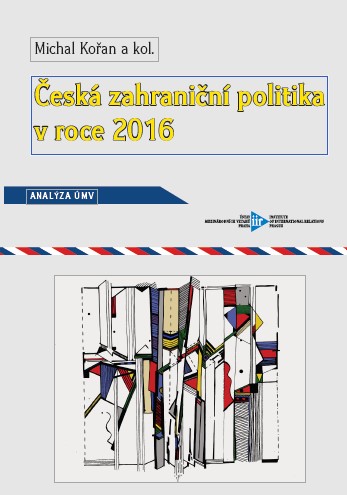
V roce 2016, stejně jako v několika předchozích letech, patřila oblast podpory vnějších ekonomických vztahů (VEV) ke stabilizovaným součástem česke zahraniční politiky. Trend k urovnání neshod mezi klíčovými institucemi, který v teto oblasti za-počala již Rusnokova vláda, se Sobotkovu kabinetu podařilo dále posílit. Patrná tak byla zvýšená snaha o aktivizaci stěžejních ministerstev i dalších zainteresovaných subjektů a tež úsilí o koordinaci a odstranění duplicit v jejich činnosti, resp. o vytvoření co nejtransparentnějšího a uživatelsky jednoducheho systemu služeb pro firmy zapojene do mezinárodního obchodu a dalších mezinárodních podnikatelských aktivit.
More...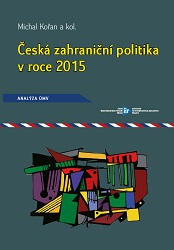
Rok 2015 byl v pořadí již třetím rokem, kdy oblast podpory vnějších ekonomických vztahů ČR (VEV) patřila spíše ke klidnějším součástem české zahraniční politiky. K tomuto stavu bezesporu přispěla stabilizace institucionální a programové základny, která započala už za Rusnokova úřednického kabinetu a byla dále podporována Sobotkovou vládou. Zároveň se sem promítalo další zvyšování aktivity klíčových státních institucí i snaha o větší koordinaci jejich činnosti. Navzdory některým nepříznivým tendencím v mezinárodním prostředí se dařilo dobře i českému exportu. Uspokojivý byl rovněž příliv přímých zahraničních investic.
More...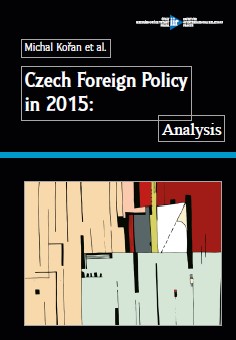
The year 2015 was the third consecutive year when the area of support of external economic relations of the Czech Republic (VEV) belonged to fairly peaceful parts of Czech foreign policy. This situation was facilitated, without a doubt, by stabilization of the institutional and programme base, which started already during Rusnok’s care-taker government and it was then supported by Sobotka’s government. At the same time, further increasing of activities of key state institutions as well as efforts for greater co-ordination of their activities were reflected in it. Despite some unfavorable tendencies in the international environment, Czech export did well too. The in-flux of direct foreign investments was also satisfactory.
More...
Ovo poglavlje se kontekstualno osvrće na društvene, ekonomske, političke i kulturne prilike, te svakodnevni život u Socijalističkoj Republici Bosni i Hercegovini (SRBiH), odnosno Socijalističkoj Federativnoj Republici Jugoslaviji (SFRJ) po završetku Drugog svjetskog rata pa do kraja osamdesetih godina, sa posebnim naglaskom na žensko pitanje i položaj žena. Pažnja će se posvetiti ranim socijalističkim naporima i zakonodavnim mjerama za ravnopravnost spolova i emancipaciju žena, kao i cjelokupnom društvenom napretku za vrijeme socijalističke vlasti. Pitanja pozitivnih i negativnih implikacija ovog napretka po život žena propitivat će se iz feminističke perspektive. Za čim su žene žudjele, čemu su stremile, čemu se nadale i za šta se borile, da li su uspjele dosegnuti ravnopravnost sa muškarcima u periodu bratstva i jedinstva – samo su neka od pitanja kojima će se posvetiti posebna pažnja. Kako je pitanje obrazovanja žena bilo posebno važno u ovom periodu, ovoj temi će se posvetiti posebna pažnja, kao i doprinosu žena nauci. Pregled prilika kad su kultura i umjetnost u pitanju, posebno književnost, slikarstvo, pozorište i film daje se kroz predstavljanje rada određenih žena u ovim oblastima. Napominjemo da su i u ovom poglavlju spomenute samo neke od žena koje su se svojim djelima, radom i ostvarenjima istakle u toku socijalističkog perioda BiH.
More...

This study investigates the history of the Jewish community in Nýrsko and its surroundings, detailing their settlement and contributions from the medieval period to the 20th century. It highlights the establishment of the Jewish ghetto, the construction and reconstruction of the synagogue, and the various professions held by Jewish residents, including traders, butchers, and teachers. The text also discusses the impact of significant events such as the fires of 1798 and 1861, which destroyed parts of the ghetto, and the economic development brought about by Jewish entrepreneurs in the late 19th and early 20th centuries. The document further examines the challenges faced by the Jewish community, including high taxes, restrictive regulations, and periods of persecution. It also covers the contributions of notable individuals like Wilhelm Eckstein and Max Reiser, and the efforts to preserve Jewish heritage in the region through research and museum exhibitions. The study concludes with a reflection on the ongoing interest in the history of Nýrsko's Jewish community and the importance of preserving their legacy.
More...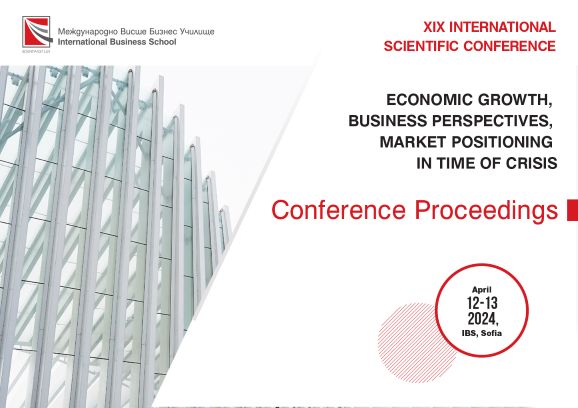
Conference Proceedings from the XIX International Scientific Conference “Economic growth, business perspectives, market positioning in time of crisis”.
More...